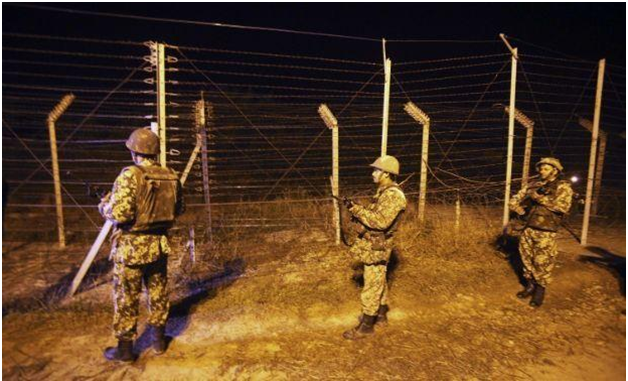Colossal Intelligence Failure in J&K, Agencies Suffer as Foreign Policy Seduces NSA
Clearly not enough.

NEW DELHI: In state supposedly crawling with sleuths of all possible agencies, the planned attack on the Army’s 31 Filed Regiment Camp at Mohra in the highly sensitive Uri district spells a colossal failure of Indian intelligence.
At the end of the day eight soldiers, including a Lt Colonel, three policemen and the six militants were killed. The Army was caught by surprise but managed to bring in quick response teams to flush out and kill the militants as well. The Army version is that these militants came across from Pakistan, one of them has been identified as a Lashkar e Tayaba man, and cut the barbed wire around the camp to get in.
The question being asked is how the intelligence agencies did not get a whiff of the planned operation, and that too in the Uri sector that has always been prone to militancy from across the border because of its sheer location, and as per claims infused with intelligence agencies, external, internal as well as military.
Six militants not only managed to get across the increased Israeli fostered security gizmos along the border, but with heavy arms move through Uri to Mohra and virtually walk into the camp after cutting the wires. In a state where every innocent Kashmiri has suffered from the frequent clampdowns----one is on now on the eve of Prime Minister Narendra Modi’s visit to Srinagar---this level of unguardedness is inexplicable.
Three major factors have heightened security risks in Jammu and Kashmir but clearly the intelligence network spread through the state, and often at conflict within, has not been geared sufficiently the handle the pressures. One, the floods and the desperation and anger within the state about the complete indifference of New Delhi to the plight of the hapless victims who have not even been able to move ahead in reconstructing their homes.
Two, the elections that have polarised the state at two levels.First, between communities and inter-state regions because of aggressive communal campaigning by some political parties. And secondly, those who decided to vote for whatever reasons in the Valley as against those opposing the elections and supporting the boycott call. Besides Baramulla and Srinagar are both due to go to the polls in the next two phases of the elections, and hence clearly fall in the category of ‘highly sensitive.’
And three, the continuing hostilities with Pakistan that has responded by ratcheting up the Kashmir issue yet again with the Prime Minister, Army Chief and others in Islamabad making it clear that this would no longer lie on the back burner, but had been brought up on a high flame on to the front burner.
The three factors should have automatically ensured heightened intelligence activity in the state, and so far there is no word how six men with the large cache of arms could move so freely in the Uri sector and launch a major offensive that killed six soldiers and three policemen before it was contained. According to the Army the militants were carrying six AK rifles with 55 magazines, two shotguns, two night vision binocumors, four raid sets, 32 unused grenades, one medical kit and a “large quantity of miscellaneous equipment.” Despite this their movement was not detected and they were not challenged along the way.
It is no secret that while Jammu and Kashmir is supposed flushed with operatives of Military Intelligence, Research and Analysis wing, and of course the Intelligence Bureau that has acquired a highly political character in the state, the coordination and cooperation between the agencies remains limited. Every National Security Advisor becomes far more involved in foreign policy, with the intelligence network suffering from needless intervention and meddling instead of a systematic effort to set up a coordinating mechanism that works on the ground.
NSA Brajesh Mishra was a foreign policy person as was NSA Shiv Shankar Menon. Two NSA’s who came from the intelligence network MK Narayanan and now Ajit Doval too got seduced by foreign policy, and their interventions in the agencies were more in the nature of postings and elevations than in any serious effort to re-organise and revive the organisations. Doval in fact spends more time in travelling abroad on the government’s supposed fire fighting missions, and has little time for his former outfits in real terms.
Sloth and inertia has set into the fractious intelligence gathering apparatus at more levels than one, and stretched resources as in this case --because of the elections and continuous high level visits to Jammu and Kashmir---has taken its toll. The IB resources for instance were spread out thin for ‘electioneering’ and predictions of individual constituencies than in watching out for possible infiltrations and terrorist attacks.
PM Modi’s hostile relations with Pakistan, and the high turnout of voters in the first two phases of the elections should have rung all possible alarm bells in the different intelligence headquarters about the need for extra around the clock vigilance for precisely this kind of terrorist strike. However, as a senior politician from Jammu and Kashmir said, “when the IB was involved in election predictions, how was it going to look out for militant attacks?” How, indeed.



